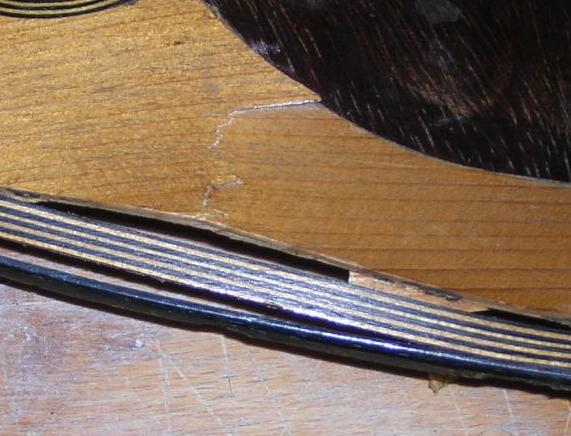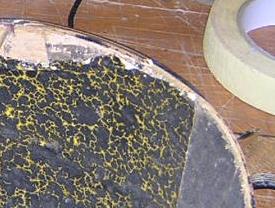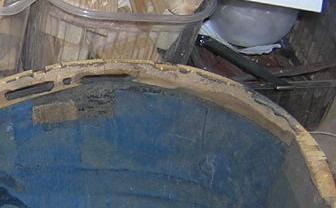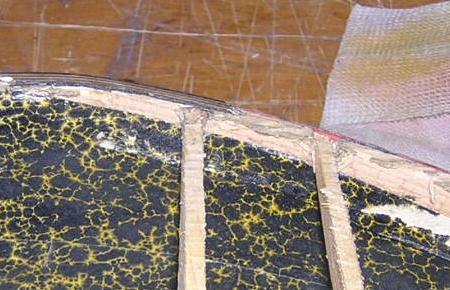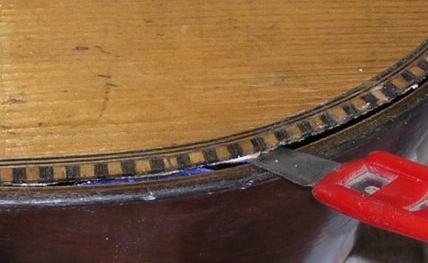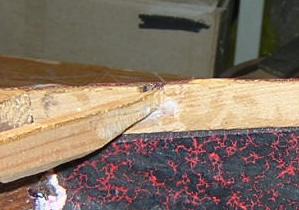|
Shrinkage and Struts The results of shrinkage will often be seen in the strutting and linings. In the following cases the struts will need shortening. We can see the evidence that shows that lateral shrinkage (in the table) IS greater than longitudinal, (in the struts) so the strut ends often 'push outwards' damaging purfling, edging and causing separations of the sides and the resultant structural failure in severe cases. |
||
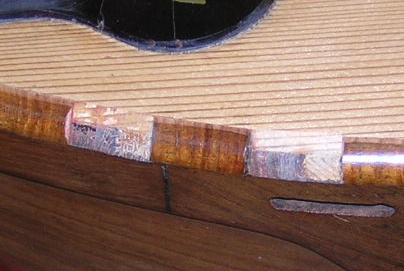 |
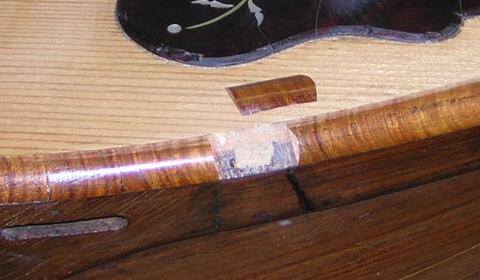 |
|
| On this de Meglio, the tulipwood edging has been pushed off where the struts meet the tulipwood edge. | On the opposite side it was the same. The struts have shrunk lengthways (longitudinal grain) much less than the top has shrunk laterally (across the grain). | In extreme cases, this shrinkage difference will force the purfling, glued to the side, away from the rest of the top. The integrity of the top is now compromised and buckling often follows, as here. |
|
|
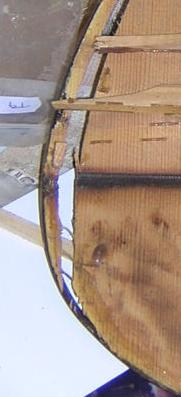 |
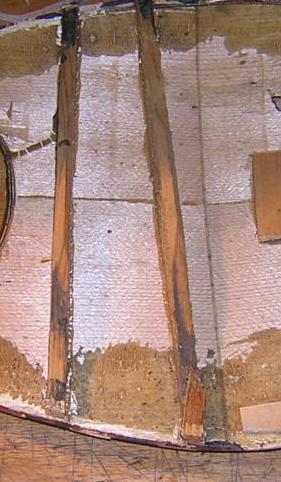 |
|
This is a view of the underside of a top. In this drastic example, the struts remained in place, while the purfling stayed glued to the side. The top shrank inwards away from the edges leaving a very visible gap. |
Another example of the same thing. This can often happen on both sides of the instrument, because the edging is securely glued, the centre-join re-enforced, leaving the thinnest part of the top, under the purfling, to split. | In this example, the struts were all in place, and there was no splitting of the top, but it moved nevertheless. Once removed, the cause was found to be a broken strut end, where it can be quite thin. |
